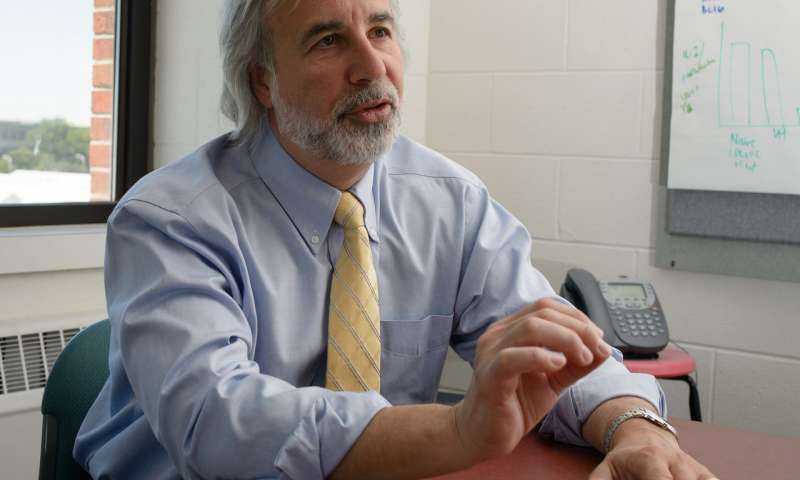HELENA — The board chairman of the McLaughlin Research Institute floated an idea by lawmakers wrestling with medical marijuana legislation this session to have the facility be part of a program to test cannabis products.
In a March 15 email to some Great Falls legislators, Randy Gray said MRI could contract with the state Department of Public Health and Human Services to test the products and research cannabis addictive properties and ways to control them.
“The result would be efficient for Montana, effective for users of medical marijuana and helpful to stabilize and expand MRI’s science staff,” Gray states in his email that includes Democratic Rep. Tom Jacobson and GOP Sens. Brian Hoven and Ed Buttrey.
Gray notes a proposed 6 percent tax for medical marijuana for Jacobson’s House Bill 529 could be upped to 7 with the $3 million generated split between testing cannabis products and biomedical. That bill has been tabled by committee. However, there is another medical marijuana law expected to be voted on soon in the Legislature.
McLaughlin is an independent nonprofit biomedical research institute founded in 1954. It serves as a center for neurogenetic research on Alzheimer’s, Parkinson’s and other degenerative nerve diseases.
“There is work going on here in Montana that could be expanded on and create economic opportunity,” he said.
Mike Kavanaugh, McLaughlin director and professor of neuroscience at the University of Montana School of Pharmacy, said legislation regarding medical marijuana is still in flux.
“We’re beginning to touch base to reach out and let them know we are here if they (DPHHS) need assistance formulating a plan,” he said, adding there will be a “lot of work to do” once a bill emerges from the Legislature.
Jon Ebelt, DPHHS spokesman, said the department is in the process of writing the administrative rules that would establish the licensing requirements for providers and testing laboratories and the testing standards for the marijuana and usable marijuana products.
“Once those standards are established, any organization interested in providing these services would be required to become licensed by DPHHS,” he said.
A major medical marijuana bill in this legislative session, Senate Bill 333, is expected to face its third reading in the House on Tuesday. The House Taxation Committee approved the measure April 10 after making 20 amendments that would, among other things, exempt small marijuana providers from the testing requirement and change the proposed fee structure for providers.
On Nov. 8, voters approved a ballot initiative to roll back a law that banned providers from selling medical marijuana to more than three people.
Jacobson said Gray’s email may have some merit.
“If it’s in their wheelhouse and provides an additional source of revenue for them and helps the state of Montana, I’m for that,” he said. “The more we keep for locals the better off we are.”
On Nov. 8, a majority of voters rejected I-181 on the statewide ballot, which would have issued as much as $200 million in bonds over 10 years to fund Montana-based biomedical research into brain diseases and disorders and mental illnesses.
At the time, Gray said McLaughlin has experienced decreased funding from the National Institutes of Health.
He said the bond could help McLaughlin and other Montana-based groups such as University of Montana, Montana State University, Shodair, Benefis and others plan for long-term projects that may come up with cures for chronic conditions.
Kavanaugh said it’s too early to say what will happen. He said it was not something that would obviously be a big fiscal benefit to McLaughlin.
“To be honest it’s not something that would necessarily have a significant financial impact on the institute,” he said, adding MCI was interested in all aspects of neurological disease and human health.
credit:greatfallstribune.com










